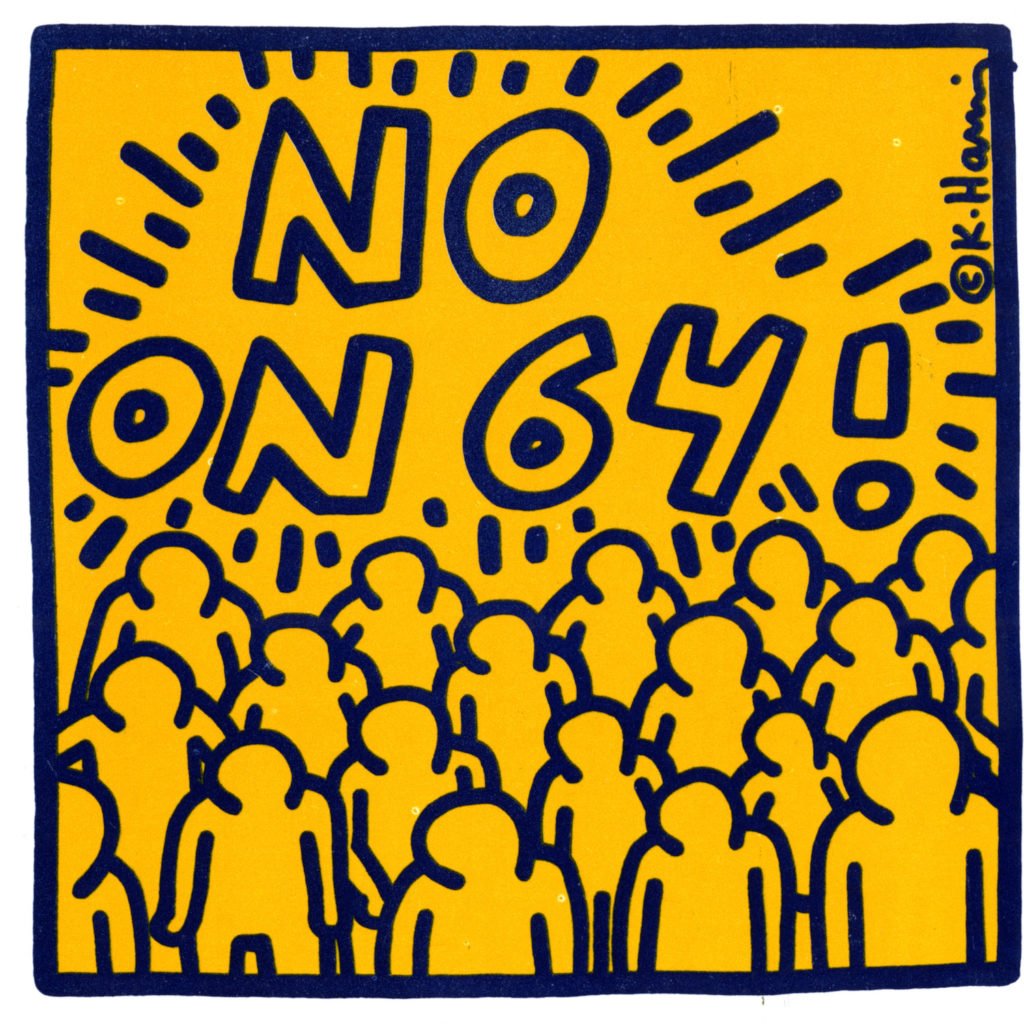
Artist Keith Haring designed this graphic in 1986 related to California’s Proposition 64. Proponents of the ballot initiative argued that the measure would merely return AIDS to the list of communicable diseases under the public health laws. Opponents characterized it as an effort to force HIV-positive individuals out of their jobs and into quarantine. The measure was soundly defeated by voters. Photo: ONE Archives at the USC Libraries.
Seniors living with HIV in California will have access to programs and services administered through the Department of Aging thanks to a bill signed by Gov. Gavin Newsom.
SB 258, the HIV and Aging Act, updates the state’s Welfare and Institutions Code to include seniors living with HIV because they are more likely to have multiple comorbidities, behavioral and mental health issues, and limited social support.
That also means local aging agencies will be required to outreach to seniors living with HIV about programs and services available to them.
Seniors living with HIV were not previously included in the Welfare and Institutions Code because in the 1980s people who were HIV were not expected to live into their 50s, 60s, or beyond.
Advances in medical treatments have increased life expectancies for people living with HIV, resulting in longer and healthier lives. These advancements also mean the number of older adults living with HIV is increasing.
‘Golden Girls’ class at Cal State Long Beach has lessons on women, aging
“When I was the Santa Cruz AIDS Agency Director in the 1980s, it was our dream to have people living with HIV live into old age,” state Sen. John Laird, the bill’s author, said in a press release. “To be very clear, this group was not supposed to age.
“Due to government inaction, lack of social support, suicide, and fear of cruelty from peers, the HIV positive, LGBTQ older population remained largely invisible for decades,” Laird said.
More than half of the people living with HIV in the state are 50 years old or older, according to a 2019 California HIV Surveillance Report. The report found that 15 percent of recently diagnosed patients were 50 and older.
However, older people with HIV continue to face unique challenges and barriers in health and well-being.
CA law protecting LGBTQ seniors from misgendering struck down by court
A 2020 report by SAGE’s HIV and Aging Policy Action Coalition identified that older people with HIV are more likely than their HIV-negative counterparts to have multiple comorbidities, including certain cancers, cardiovascular disease, fractures, and hepatitis C.
Older people with HIV also face a number of behavioral health challenges, including rates of depression up to five times greater than their HIV-negative peers and greater levels of stigma, social isolation and loneliness.
Sponsors of the bill include Equality California, AIDS Project Los Angeles Health, SAGE, and the Los Angeles LGBT Center.
The HIV and Aging Act will go into effect Jan. 1, 2022.
